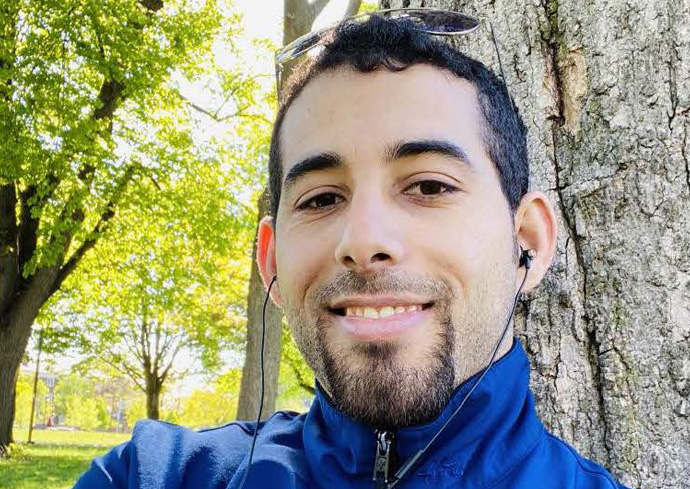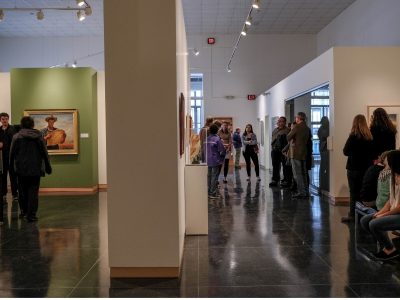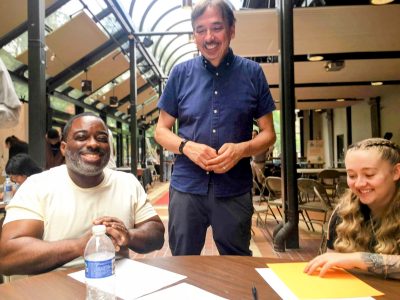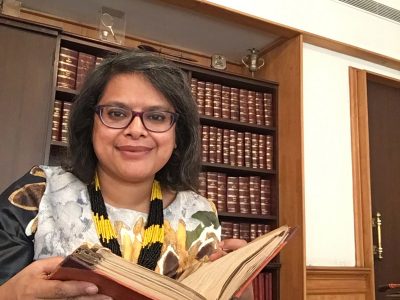‘My Poetry Is a Record of What Happened’ Says Palestinian MFA Student Mosab Abu Toha G’23
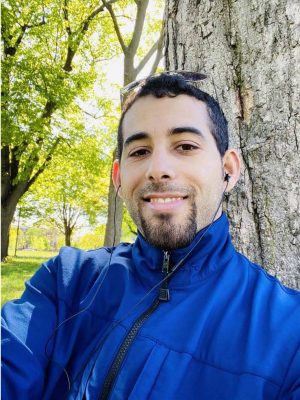
The title poem in the debut collection of Mosab Abu Toha G’23 begins with a plea that the surgeon repairing his punctured eardrum save the things he cherishes: his mother’s voice, songs in Arabic, poems in English, chirping birds. “When you stitch the cut, don’t forget to put all these back in my ear,” he writes.
As for the sounds of drones, F-16s, bombs or rockets, “Rid my tiny ear canal of them all,” Abu Toha, a student in the creative writing M.F.A. program, writes. The book, “Things You May Find Hidden in My Ear” (City Lights, 2022), is a finalist in the sought-after National Book Critics Circle Awards, which recognize the best books written in English in the United States in six categories.
The collection also won in the Creative Awards category of the 2022 Palestine Book Awards. Sponsored by the news outlet Middle East Monitor, the awards recognize books for contributing to the diversity of submissions and genres featuring the Palestinian narrative.
Palestinian writer Abu Toha previously was a visiting poet and scholar at Harvard University and a visiting librarian-in-residence at Harvard’s Houghton Library. His writing has appeared in outlets that include Poetry, The Nation and Arrowsmith. Drawn from firsthand experience living under Israeli restrictions and attacks, his poetry is characterized by close attention to intimate details amid political violence and personal loss.
“We are so honored to have Mosab in our midst at Syracuse University,” says Coran Klaver, associate professor of English and department chair. “He is a brilliant poet whose gift for creating imagery subtly draws the reader into the experiences and scenes he describes, often leaving them riven between feelings of wonder and horror.”
In February, he gave a well-received reading at Syracuse’s Downtown Writer’s Center. “When I read my poems to people aloud, I feel what I’m reading as if it’s happening again,” Abu Toha says. “It is a great experience to read to people and see how they react to your poems.”
When he finishes his studies at Syracuse in August, he will return home to Gaza to his wife and their children, ages 3, 6 and 7, and to his job teaching English in an elementary school, and continue to write in English and Arabic.
In this Q&A, Abu Toha describes how poetry helps him understand his life in Gaza.
